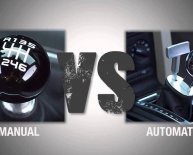
Motor Vehicle insurance comparison
Virginia law requires that all drivers have a way to pay for injuries or property damage resulting from a car accident. You can satisfy this financial responsibility law by EITHER:
- Purchasing car insurance.
OR - Paying Virginia's Department of Motor Vehicles to drive uninsured.
Read more about Virginia car insurance laws, uninsured drivers fees, policy rates, and discounts.
Car Insurance Requirements
If you choose to purchase auto insurance to fulfill your financial responsibility, you must buy Virginia liability car insurance to help cover the costs of injuries and property damage to others you caused in a car accident.
The following minimums apply to your liability coverage:
- $25, 000 for injuries per person per accident.
- $50, 000 for total injuries per accident.
- $20, 000 for property damage per accident.
You are also required to have uninsured/underinsured motorist coverage to help pay for your injuries or property damage after an accident caused by either:
- An uninsured driver.
- A driver who does not have enough insurance coverage to pay for your injuries or property damage.
Your uninsured/underinsured motorist coverage must match the minimums of your liability car insurance:
- $25, 000 for injuries, per person per accident.
Uninsured Motor Vehicle Fee
If you are registering your car, you must certify whether you have Virginia car insurance.
If you are unwilling or unable to get insurance at the time, you must pay a $500 uninsured motor vehicle fee to the Virginia DMV. (This does not include registration fees.)
This $500 fee fulfills your financial responsibility and allows you to drive uninsured for 12 months.
Understand that paying the VA uninsured motor vehicle fee DOES NOT mean you have insurance and WILL NOT protect you financially in case of an accident.
If you get into a car accident, you must pay for all damages and injuries for which you are found responsible.
While payment of the fee lets you drive uninsured for 12 months, the fee can be prorated if you wish to be uninsured for a shorter time period.
Optional Car Insurance Coverage
If you purchase auto insurance to fulfill your financial responsibility requirements, you may also want to consider buying additional coverage.
When shopping for and comparing car insurance quotes, ask about the following types of optional coverage:
- Collision – This will pay for damages to your car after a traffic accident.
- Comprehensive – This will help cover non-accident related incidents, such as vandalism.
- Medical expenses – This will help pay for your medical bills after an accident that you caused.
NOTE: While collision and comprehensive insurance are optional, lenders can require it. See below for more information.
Vehicle Loans and Force-Placed Insurance
VA law does not require you to purchase collision/comprehensive coverage; however, banks or finance companies that have financed your car can require you to purchase these coverage types.
If you do not purchase collision and comprehensive coverages, your lender may place your car under force-placed insurance and charge you for the premium.
Force-placed insurance is meant to protect the lender (not you); it will not satisfy your state-mandated financial responsibility.
VA Auto Insurance Violation Penalties
With the help of reporting from Virginia car insurance companies, the VA DMV can electronically track your car insurance status.

















